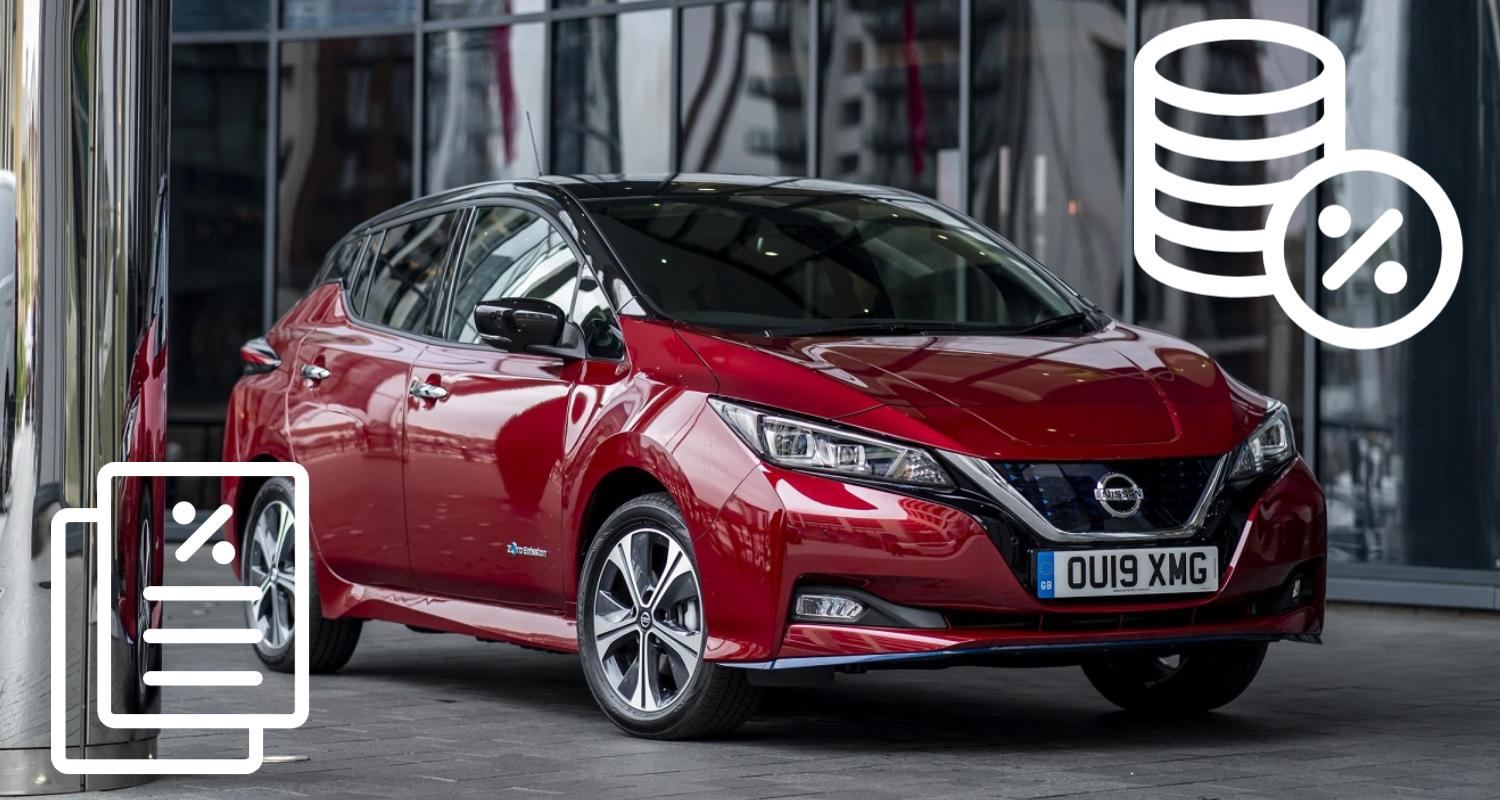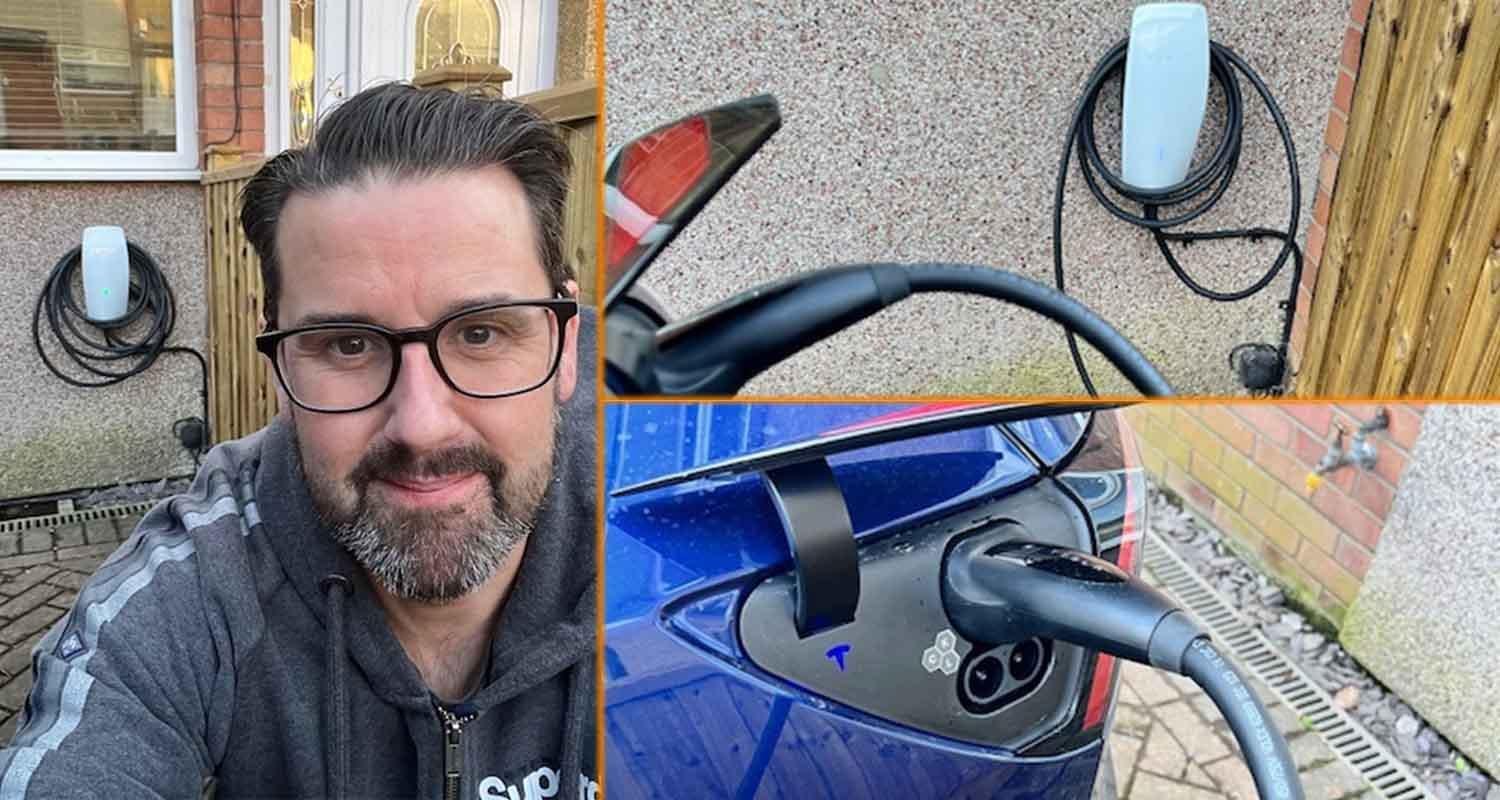How much car tax will I pay with an EV?

If you're considering entering the world of zero-emission cars you may have many reasons for getting involved.
Moving away from petrol and diesel cars will help the environment, and electric car drivers are finding the driving experience is much more relaxing than traditional fuel car owners would care to admit.
Fuel costs for electric vehicles is also lower than petrol and diesel counterparts.
Not only are you saving money by not having to fill up with diesel or petrol, but the Government has incentivised sales of EVs by making them much more affordable to tax than fossil fuel equivalents too.
Vehicle Excise Duty (VED or commonly referred to as road tax) is currently calculated based on CO2 tailpipe emissions.
For now, early BEV adopters can still take advantage of tax exemptions, but this will likely change in the future.
But how much road tax will electric cars pay right now?
Vehicle excise duty (VED) rates for cars registered on or after 1 April 2017
Since March 2001, road tax has been calculated on the C02 emissions from a vehicle.
Electric vehicles are currently exempt from road tax.
Plug-in hybrid cars are subject to a small amount of road tax and any plug-in hybrid cars that cost more than £40,000 are subject to an annual surcharge for five years.
This is called the Expensive Car Supplement.
CO2 (g/km)
This figure is supplied by the manufacturer, and denotes how much carbon dioxide the car produces from the tailpipe.
First tax payment 2023-25
Electric cars are exempt from road tax for the first year.
Hybrid vehicles are likely to cost between £0 and £110 for the first year, depending on their C02 emissions.
Standard rate (SR) 2023-25
The standard rate for pure electric cars is still free road tax.
For plug in hybrid car owners, it'll be £155 per year.
Premium supplement (vehicles with list price >£40k)
A surcharge applies to plug in vehicles with a list price of more than £40,000 but new electric vehicles are currently exempt from this.
Plug in hybrid cars will have to pay this surcharge for the first five years the car is on the road (from the second time the car is taxed).
| Vehicle excise duty (VED) rates for cars registered on or after 1 April 2017 | |||
CO2 (g/km) | First tax payment 2021-22 | Standard rate (SR) 2021-22 | Premium supplement (vehicles with list price >£40k) |
0 g/km | £0 | £0 | £0 |
1-50 g/km | £0 | £145 | £335 |
51-75 g/km | £15 | £145 | £335 |
76-90 g/km | £105 | £145 | £335 |
91-100 g/km | £130 | £145 | £335 |
101-110 g/km | £150 | £145 | £335 |
How much will I pay in company car tax with my EV?
While you might be exempt from paying VED if you run an electric car, if it's a company car that is used for any private mileage or commuting, you'll still have to pay a benefit-in-kind (BIK) charge.
BIK is a tax on any employee that gets a perk as an additional benefit on top of their monthly take-home pay.
You pay tax on things like the P11D value of the company car and the type of fuel it uses.
The P11D is the tax code the Government uses to determine the list price of a vehicle, including extras (such as metallic paint) and VAT (Value Added Tax).
It also includes the first year registration fee and vehicle tax.
The BIK rate is based on a percentage banding and BEVs currently pay 1% in 2021/22 which then goes up to 2% until 6 April 2025.
This is much lower than a new petrol or diesel car, which has seen BIK taxation shoot up to as high as 37% in order to drive businesses to choose zero-emission vehicles.
If your company car has CO2 emissions of 1 to 50g/km, the BIK percentage banding is based on its zero-emission mileage figure or 'electric range'.
This is the distance the car can go on electric power before its batteries need recharging. A PHEV with a lot of electric range of 130 miles or more will only pay 2% BIK and this scales up to 14% if your hybrid does 30 miles or less.
So it's still much more tax-efficient to run an electric car or a PHEV with a good zero-emissions range than choosing petrol or diesel.
Around 50% of cars registered each year in the UK are for company car drivers, which means the Government can drive plug-in vehicle adoption by keeping tax charges low for employees.
With the road tax on electric cars being so low, running costs are low, even though a lot of electric cars are expensive cars.
However, electric car owners will continue to pay a lower amount of road tax even after the 2025 changes come in (see below).
As an example, if you were to choose the all-electric Nissan Leaf 40kWh 150 Tekna Auto, which has a P11D price of £32,440 and CO2 of 0g/km, the 1% BIK charge would be £324 a year or £27 a month.
Benefit-in-kind (BIK) rates for cars registered before 6 April 2020
The company car tax on electric cars registered before 6 April 2020 was frozen until the end of this year.
| Benefit-in-kind (BIK) rates for cars registered before 6 April 2020 | |||||
|---|---|---|---|---|---|
CO2 (g/km) | Electric range (miles) | 2021-22 (%) | 2022-23 (%) | 2023/24 (%) | 2024/25 (%) |
0 | N/A | 1 | 2 | 2 | 2 |
1-50 | >130 | 2 | 2 | 2 | 2 |
1-50 | 70-129 | 5 | 5 | 5 | 5 |
1-50 | 40-69 | 8 | 8 | 8 | 8 |
1-50 | 30-39 | 12 | 12 | 12 | 12 |
1-50 | <30 | 14 | 14 | 14 | 14 |
51-54 |
| 15 | 15 | 14 | 14 |
55-59 |
| 16 | 16 | 16 | 16 |
60-64 |
| 17 | 17 | 17 | 17 |
65-69 |
| 18 | 18 | 18 | 18 |
70-74 |
| 19 | 19 | 19 | 19 |
75-79 |
| 20 | 20 | 20 | 20 |
80-84 |
| 21 | 21 | 21 | 21 |
85-89 |
| 22 | 22 | 22 | 22 |
90-94 |
| 23 | 23 | 23 | 23 |
95-99 |
| 24 | 24 | 24 | 24 |
100-104 |
| 25 | 25 | 25 | 25 |
105-109 |
| 26 | 26 | 26 | 26 |
110-114 |
| 27 | 27 | 27 | 27 |
Can I get an EV through a salary sacrifice scheme?
If you are charging your electric car at work or using public charging infrastructure, there is no current tax you will have to pay for the use of that electricity.
So put simply, there's no additional tax on charging at work or using rapid chargers when you're stopping to top up your electric car.
If you're running an electric car as a company car and you're charging at home, you can also claim back 5p per mile for business journeys driven from 1 December 2021.
Do I have to pay tax on the electricity I use to charge my EV?
If you are charging your electric car at work or using public charging infrastructure, there is no current tax you will have to pay for the use of that electricity.
So put simply, there's no additional tax on charging at work or using rapid chargers when you're stopping to top up your electric car.
If you're running an electric car as a company car and you're charging at home, you can also claim back 5p per mile for business journeys driven from 1 December 2021.
Road pricing and the future of electric vehicle tax
The future of car tax is currently up in the air as the Government looks at how it can replace falling fuel duty and vehicle tax revenues in an era of electric cars.
As more drivers turn to BEVs, some industry analysts have estimated the Government will be facing a £30 billion a year shortfall.
Because paying road tax funds more than the roads itself, it's like that in future all road users – including EV drivers – will pay more road tax.
It's already on the way, but for the moment only in relatively limited form.
From 2025, zero emissions cars registered on or after 1 April 2017 will be liable to pay the lowest first year rate of road tax that currently applies to vehicles with Co2 emissions between 1g/km to 50g/km.
From the second year of registration onwards, zero emission cars will move to the standard annual rate of road tax.
The Expensive Car Supplement exemption for electric vehicles is due to end in 2025. New zero emission cars registered on or after 1 April 2025 will be liable to pay the expensive car supplement where eligible (currently those with a list price of or exceeding £40,000 are liable).
This measure effectively removes Band A under the graduated VED system (for cars registered on or after 01/03/01 and before 01/04/17 with a CO2 emissions).
As the Band A rate is currently £0, these vehicles will be required to move to the first band where a rate becomes payable – in this case Band B, and thus pay road tax.
Most zero emission vans will move to the standard annual rate for petrol and diesel light goods vehicles.
Zero emission motorcycles and tricycles will move to the annual rate for the smallest engine size.
One idea is to replace the current vehicle road tax system with pay-per-mile “road pricing”.
This would combine all VED, air quality charges, congestion charges and tolls with a charge based on how many miles you drive a year.
The rate you pay could also be determined by the CO2 output of your vehicle, so it's likely BEVs would still pay the least amount.
London is already looking at introducing its own road pricing scheme from 2024 and the Government is expected to launch a consultation into a wider scheme this year, where members of the public can share their views and concerns.
There are downsides with this idea compared to the current road tax system.
For example, in a bid to avoid using premium roads, such as motorways, minor roads and urban areas may be used as a way to circumvent paying road tolls.
Though new electric cars will probably make up the bulk of most of cars by the time such an idea comes through, and thus tailpipe emissions will be far less, congestion will be much higher.
Some would therefore prefer to pay road tax in its current form, but with the weight of vehicles being the determining factor.
This is already the case, where you pay road tax with a reference to how much your car weighs.
This could provide a challenge for alternative fuel vehicles such as EVs due to the weight of the batteries.
UK roads are currently struggling with potholes so a discounted rate for lighter electric vehicles to pay road tax might be a suggestion.
Head over to our guides section to access more advice, guides and tips on running an EV.











